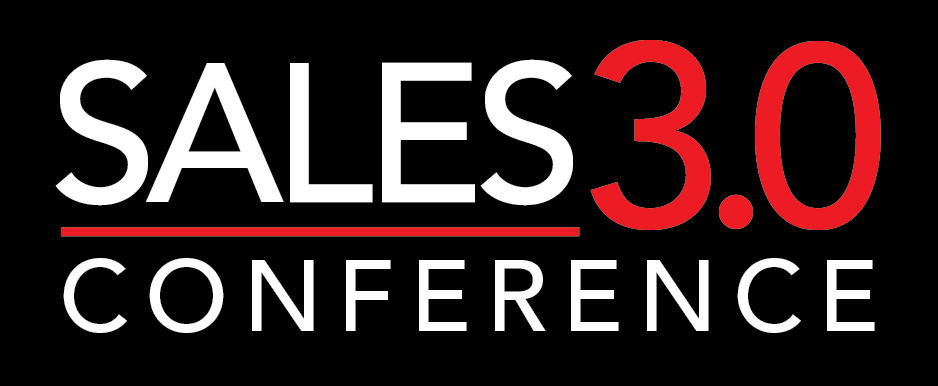At the Sales 3.0 Conference in Orlando this week, we held an impromptu panel discussion about the responses to COVID-19, which has now been declared a pandemic.
There’s no doubt this is a serious public health crisis. We all need to do our part to take reasonable precautions. As sales leaders, let’s think about how we can help our salespeople and customers, who may be feeling fear and anxiety.
I like to think of fear as an acronym for “False Evidence Appearing Real.” Fear leads people to worry, stockpile food and medicines, and sell off their investments. Again, while we must act responsibly, we don’t want our sales teams or customers to operate from fear.
Why Does Fear Take Over in a Crisis?
But it can be especially hard for people to remain calm during a crisis. Why is that so?
1) We’re called upon to adapt quickly to rapid changes.
During a public health crisis, normal routines are disrupted. Events and gatherings are cancelled. We’re asked not to attend in-person meetings or religious services. Schools close and families must arrange for childcare. Most people are not ready to process this level of change quickly. Our brains are attuned to what’s familiar – anything that disrupts our typical routine feels like a potential threat to our sense of stability.
2) We must make decisions on limited or incomplete information.
A crisis or emergency happens quickly. When a new medical threat emerges, it can take time to collect the data points leaders need to make informed decisions. A lack of clear information also reminds us of our little control we actually have over many elements of life. In truth, all we really control is our reaction to external circumstances. But a health crisis can bring this into relief in very uncomfortable ways. It can be difficult to be reminded of our own vulnerabilities.
3) We’re forced to confront lots of negative emotions and alarming news stories.
At the conference, some people shared that the media coverage of the spreading coronavirus felt hysterical and overwhelming. It can very well be frightening to see a sudden onslaught of news stories with scary headlines, or to hear many cable news anchors offer grave information on a near-constant basis. As we watch, read, and hear these stories, we then talk about them among ourselves, which amplifies our worries. It can increase our sense that the world is a scary, dangerous place.
How to Shift a Fearful Mindset
In my Peak Performance Mindset trainings, I explain the brain has something called a “negativity bias.” This bias is meant to protect us. For example, if you’re walking in the dark and hear a rustling behind you, your brain imagines someone crouched in the bushes, ready to attack you. This is the primitive part of your brain that helped keep your ancestors alive. It still functions whenever it perceives a threat.
In other words, your fear is trying to protect you. When you hear about something scary or alarming, your brain responds by telling you to fight, run, or freeze in place.
At the Sales 3.0 Conference, Joël Le Bon explained fear is an emotional response to a perceived threat or danger. Your mindset is an established set of attitudes based on our beliefs and experiences. Yet these can be biased; what happened in the past is not necessarily what will happen in the future.
With a fixed mindset, we focus on the known and stay in our comfort zone. A growth mindset means focusing on the unknown, to further learn and growth.
There are things we can do to circumvent our primitive brain and control our reaction to external events. Here are a few ideas.
1) Guided imagery meditations.
Guided imagery is a simple and powerful way to alleviate distress, reduce anxiety, promote restful sleep, and provide a sense of mastery and confidence. Try listening to the recordings made by psychotherapist, clinical social worker, author and guided imagery pioneer Belleruth Naparstek. She created the popular Health Journeys guided imagery audio series.
2) Move your body and get plenty of rest.
This week my friend Anthony Iannarino wrote a great blog post, “What to Do When the World is on Fire.” He reminds us: “When threats are real, fear and stress can make things worse, including making you more susceptible to illness. Get some exercise, even if it is just walking, and get a good night’s sleep, sleeping for a minimum of seven hours, eight if possible.” Get outside and walk around your neighborhood or local park. Try an online yoga class (Down Dog Yoga is offering free apps so you can practice at home for the month of March). Take baths or watch a show that makes you laugh.
3) Set limits on consuming news or having heavy conversations to prevent negativity absorption.
During a pandemic, you will see scary news reports and many “breaking news” headlines. You want to stay informed, but you don’t want to overdo it. Past a certain point, it will likely only make you feel worse to read more news articles, watch more cable news, or scroll through social media for sustained periods of time. Stay informed, but limit your screen time and news intake. You can also choose to not engage deeply in conversations with people who express a lot of heaviness and negativity.
How to Sell in a Climate of Fear
A pandemic is not business-as-usual; and it makes sense to wonder how it will affect your business.
In a recession, for example, we adjust our sales strategy and selling style. For awhile, things may be uncertain. You may notice a decline in business or shifts in buyer behavior. Depending on what effects the crisis has, you may notice a depressed or gloomy mood among customers. There may be layoffs, bankruptcies, or closures (temporary or permanent). The time to plan for such events is now. Here are some tested principles to help you stay the course.
1. Hope for the best and plan for the worst.
The past is not always a predictor of future stability (or growth), but as humans we often develop a false sense of security based on general sales growth and ongoing sales success. As the captain of an ocean liner must conduct a safety drill for each voyage, sales managers should develop a “slow sales response plan” for every year. Contingency planning tends to take away the element of helplessness often associated with a temporary sales slump.
2. Look for creative ways to sustain and support sales.
Think about how you can maintain, sustain, or support your revenue flows. If one of your market segments is inactive, can you pivot to another segment that would find value in your product? Do you have any back-burnered projects or plans that might help you meet this moment with a stronger offering? Savvy sales managers will huddle with their salespeople to brainstorm how the team can find pockets of opportunity.
3. Call your customers immediately to find out what they need.
Great selling is about providing value in proactive ways. In a crisis, circumstances change rapidly. Your customer’s definition of “value” may be changing by the day or week. Now is not the time to go dark or hang back and wait for customers to call you. Reach out to see what your customer’s top concerns are, and ask how you can support them.
4. Upgrade your professional skills.
Part of carrying on in a crisis is choosing where to focus your time and energy. Prioritize taking care of yourself, your loved ones, and community; beyond that, this could be a good time to improve your leadership, management, or selling skills. Invest some time in online training, watch webinars, and connect with your colleagues to see what books, training, reports, or strategies have helped them improve over the past year.
Alice Heiman, who was a terrific chief networking officer at the Sales 3.0 Conference (and gave a great main stage presentation about creating the right sales leadership mindset for increased sales growth) is offering special online sales training designed to help salespeople talk with customers about coronavirus fears.
Whatever you do, develop an intention to improve your mind, body, and spirit so you and your team can emerge stronger when the crisis abates. I’d like to thank all the speakers who shared their insight and expertise this week at the Sales 3.0 Conference, and the sales leaders who joined us. Find out where you can join us for another Sales 3.0 Conference event in 2020.

